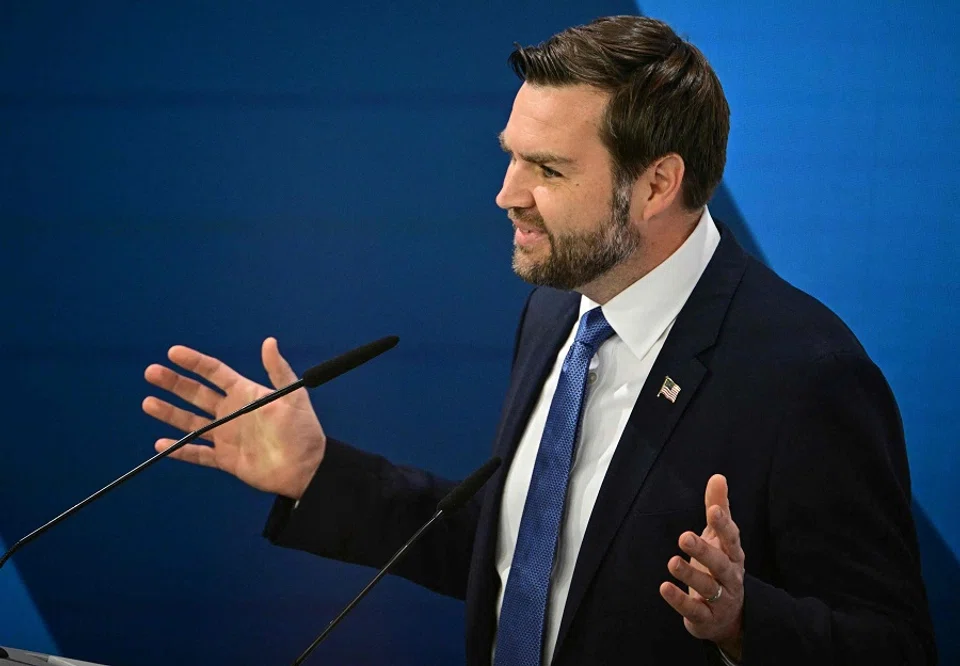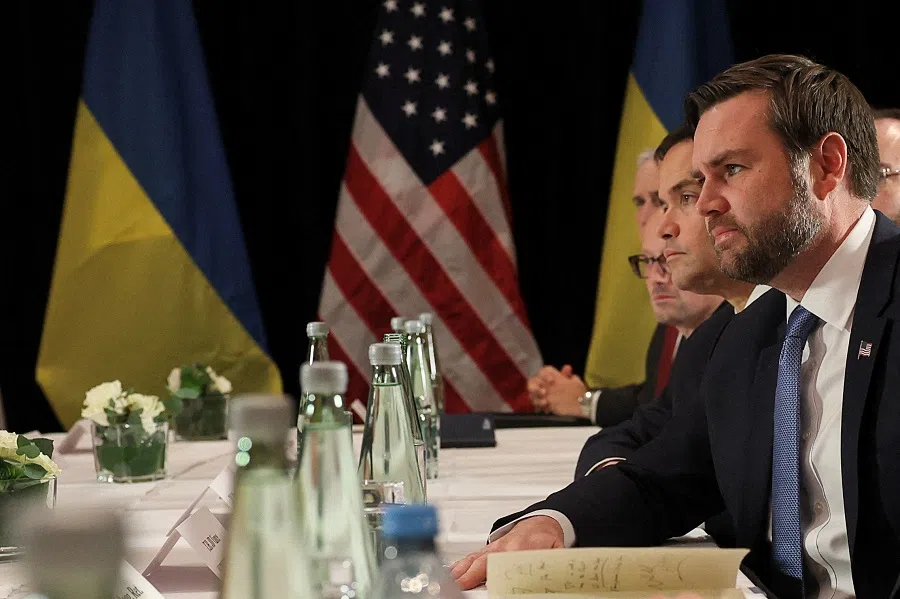JD Vance’s Munich speech: A shift in Europe-US relations?
US Vice-President JD Vance’s recent speech at the Munich Security Conference signalled a changing stance on Europe and strains on the translatlantic relationship. How will Europe respond? Academic Zheng Weibin examines the impact.

14 February 2025 — Valentine’s Day — was evidently not a romantic occasion for US-Europe relations. At the Munich Security Conference, US Vice-President JD Vance’s speech seemed to reveal that US-Europe relations are set to face a profound transformation. The 20-minute speech not only stunned the European politicians present, it also exposed the current unprecedented challenges faced by the transatlantic alliance.
Initially, Europeans expected Vance to address the topics they were most concerned about: European defence spending and resolving the Ukraine issue. However, these topics were merely glossed over by Vance. Instead, he spent the majority of the time sharply criticising Europe’s internal governance. He emphasised that “the greatest threat to Europe is not Russia, not China, nor any other external force, but an internal threat”. He accused Europe of “straying from fundamental values”, criticising the EU’s threats to shut down social media platforms containing “hate” content and Germany’s actions against online hate speech. On immigration, he bluntly stated that it is the most pressing challenge Europe faces, and implied that Europeans are correct in supporting anti-immigration policies.
... the Trump administration’s policy towards Europe exhibits clear characteristics of an “imperial mindset”.
Shift in US-Europe relations
Vance’s speech was not an isolated incident. Prior to this, US Secretary of Defense Pete Hegseth made it clear at NATO headquarters in Brussels that Europe should not rely on American leadership and protection any longer, stating that the US would no longer tolerate an imbalanced relationship which encourages dependency, signalling that large spending to maintain peace in Europe is no longer a priority for the US. Trump went even further, bypassing Europe to have a 90-minute conversation directly with Putin on the Ukraine issue. Notably, Trump and Hegseth appeared to be acquiescing to all of Putin’s demands regarding Ukraine: Ukraine would not join NATO, no US troops would be stationed there, and Russia would be allowed to retain all Ukrainian territories it has occupied thus far.
This not only shattered the unified stance of the Western alliance on the Ukraine issue, it also represented a betrayal of Europe and Ukraine. Hence, while Europe had hopes that the US would advance a resolution to the Ukraine issue at the Munich conference, the outcome was the complete opposite. This inevitably brings to mind the historical Munich Agreement, a pact where a great power manipulated the fate of a smaller nation.

This series of events marks a fundamental shift in US-Europe relations. From a broader perspective, the Trump administration’s policy towards Europe exhibits clear characteristics of an “imperial mindset”. The aim of such a mindset is not centred on safeguarding shared values and collective security, but to establish a framework that would maximise US interests. Within this framework, Europe is expected to shoulder more costs while continuing to rely on the US. For instance, the Trump administration has made it clear that the cost of rebuilding war-torn Ukraine would be entirely borne by Europe.
This new type of relationship is in stark contrast to the traditional transatlantic partnership. The US is no longer acting as a “protector” but moving into a “transactional” role. When the US begins to treat Europe like a colony, the existing alliance has turned into a new kind of dominant-subordinate relationship. This shift not only affects specific policies but also challenges the entire post-war international order.
To Europe, this shift came at a particularly inopportune time. Currently, facing the Russian threat, Europe needs US support more than ever. Yet the US shifted its stance at this critical juncture, undoubtedly dealing a heavy blow to Europe. Now, Europe not only needs to handle the Russian threat but must also guard against the US’s potential “betrayal”. This dual pressure makes Europe’s strategic choices exceptionally difficult.
... if Europe is fully dependent on the US, it would strengthen the US’s global dominance and increase strategic pressure on China.
Choices for Europe
Europe is undoubtedly standing at a historical crossroads. One path leads to strategic autonomy, strengthening its own military capabilities and political unity to achieve true independence. The other involves accepting deep dependence on the US, relying on it more for economic and security matters. This choice will determine Europe’s role and position in the future global landscape.
To China, Europe’s decision also holds significant strategic implications. One is a more independent Europe that is able to balance the US global strategy to a certain extent, creating a more favourable international environment for China. Conversely, if Europe is fully dependent on the US, it would strengthen the US’s global dominance and increase strategic pressure on China.

However, achieving true strategic autonomy will not be easy for Europe. For one thing, there is the gap in military capabilities. Western European countries still maintain relatively low defence spending, with significant funds allocated to maintaining nuclear arsenals rather than conventional forces. Next, political will. Disagreements persist within Europe regarding policies towards Russia, defense spending, and other issues, weakening its ability to take unified action.
... while the US was clearly a potential support for Europe back then, Europe today faces a more delicate choice: become a vassal under US protection, or seek true independence amid uncertainty?
The current situation undoubtedly reminds Europeans of the 1930s. Back then, everyone seemed to foresee the coming war, but could do nothing to prevent it. Europe’s current situation appears to be a repeat of history. However, while the US was clearly a potential support for Europe back then, Europe today faces a more delicate choice: become a vassal under US protection, or seek true independence amid uncertainty?
While this answer will not come quickly, it is certain that we may be witnessing a historic turning point: one that will redefine transatlantic relations and profoundly impact the future world order.
This article was first published in Lianhe Zaobao as “万斯慕尼黑演讲开启欧美关系大转向?”.





